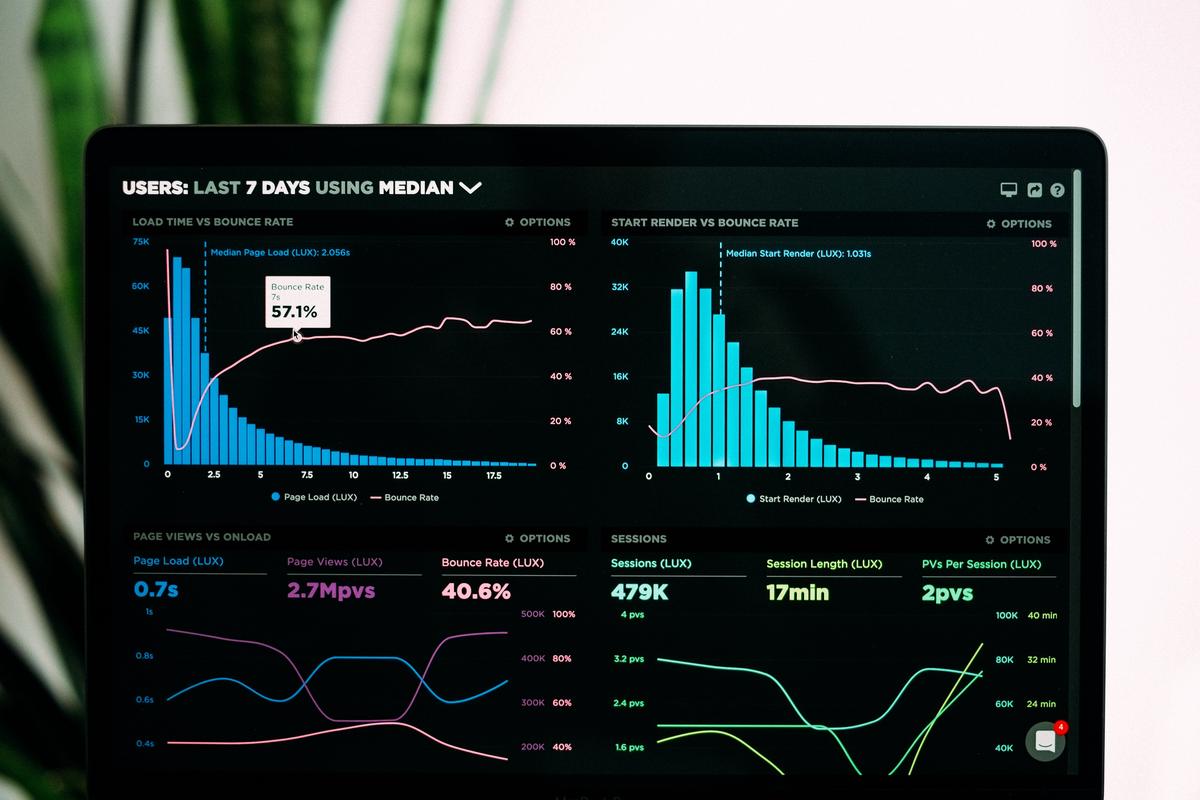Embarking on the journey of personal development is one of the most empowering steps a person can take. This voyage of self-improvement and self-awareness is undoubtedly a lifelong quest, fueled by one’s goals and aspirations. By understanding the concept of personal development and its inherent importance in every aspect of our lives, we set the stage for exponential growth. This understanding, paired with the identification of key areas of personal development and the use of effective techniques for self-growth, is essential in ensuring the enhancement of our quality of life and the materialization of our dreams and aspirations.
Understanding Personal Development
Understanding Personal Development
Personal development is the process through which individuals actively seek to enhance their skills, knowledge, attitudes, and overall potential. This continuous journey of self-improvement stretches across all facets of life- be it professional growth, academics, physical well-being, emotional health, or spiritual enlightenment. It involves setting personal goals and taking conscious steps towards the achievement of these objectives by acquiring new skills, broadening horizons and embracing change for the better.
Significance of Personal Development
In the hustle and bustle of our daily routine, personal development often falls by the wayside, however, its significance cannot be underestimated. The need to learn, grow, and evolve is a fundamental part of human nature. Personal development is vital for a wide array of areas in our lives. It aids in managing stress, improving socializing skills, enhancing productivity, attaining career goals, and uplifting general well-being. It opens doors to new opportunities while building resilience to adapt to adverse circumstances.
Fundamentals of Personal Development
The journey of personal development is rooted in a few enduring principles. Self-awareness and goal setting are the foundational elements of personal development. Being aware of your strengths, values, desires, and weaknesses, allows for the setting of realistic and congruent goals that align with your inner self.
Personal development is an ongoing process, not a one-time event. It requires consistency and dedication, coupled with an open mind ready to engage in new experiences and knowledge acquisition. A keen appetite for learning, enthusiasim to explore varied fields, and the motivation to challenge personal boundaries characterize a successful personal development quest.
Personal Development: A Lifelong Process
Personal development is a never-ending voyage. There is always something new to learn and an area to improve. The path is not pronouncedly linear but embedded with success and setbacks alike. Each pitfall is a new lesson, while every triumph is a stepping stone to further growth. Personal development is about celebrating small wins, understanding and embracing failures, and continually bettering oneself.
Role of Personal Development Goals
Setting clear, attainable goals is a cardinal aspect of personal development. Goals spur growth, drive focus, and offer a sense of direction. These can range from mastering a new skill to achieving a fitness target, advancing in career, or improving relationships. Goals are a manifestation of personal aspirations and, thus serve as a reminder of one’s purpose, anchoring the process of personal development.
Enhancing Quality of Life Through Personal Development
Personal development invariably leads to an amplified quality of life. It helps in achieving a desirable work-life balance, enriches relationships, fosters a growth mindset, cultivates positive habits, and builds emotional resilience. The sense of accomplishment that comes with achieving personal goals cultivates happiness, fulfillment, and self-esteem, leading to a wholesome and satisfying life experience.
Transforming Dreams into Reality
Personal development holds the key to tapping into unexplored potential, turning dreams and aspirations into reality. This transformative journey serves as the link between one’s present circumstances and future goals. Success and fulfillment in life are reflections of this ongoing process of personal development, epitomized by a commitment to continuous education, growth, and achievement. This journey of realization extends beyond impressive milestones to include finding joy in living an authentic life, full of meaning and purpose.

Key Areas of Personal Development
Promoting Mental Wellness
Integral to personal development is the enhancement of mental health. The role it plays is vital as our mental state profoundly impacts our interpretation of the world, our thought processes, and our actions. Strengthening mental health can be achieved through methods such as mindfulness and meditation, lifelong learning, and mental drills that encourage alertness and adaptability. New experiences and challenges help stimulate mental growth and fortitude. Techniques drawn from Cognitive Behavioral Therapy (CBT) can also aid in reshaping detrimental thought patterns and foster healthier mental habits.
Emotional Development
Emotional development is another crucial facet of personal development. This involves understanding and managing one’s emotions, as well as being able to empathize with the feelings of others. Emotional intelligence can impact different aspects of life, such as relationships, career advancement and overall physical health. Techniques for fostering emotional growth include therapy, emotional literacy exercises, maintaining healthy relationships, and practicing empathy and emotional expression. Mindfulness and stress-management techniques can also be beneficial for emotional health.
Physical Development
Physically developing involves taking care of the body through regular exercise, proper nutrition, adequate sleep and maintaining a healthy lifestyle. Regular exercise can not only improve physical health, but also contribute to mental and emotional wellbeing by relieving stress, boosting mood, and improving sleep. Alongside regular physical activity, eating a balanced diet and staying hydrated are essential for maintaining overall health.
Financial Development
Financial development refers to the improvement of financial awareness, understanding, and habits. This includes saving, investing, understanding and building credit, and managing debt. It’s pivotal that individuals understand the basics of personal finance to secure their financial future, reduce stress, and achieve their life goals. Financial literacy classes, working with a financial advisor, reading finance books or using personal finance apps are some of the potential resources for improving financial understanding and management.
Spiritual Development
Finally, spiritual development often involves the pursuit of a higher purpose and understanding of oneself. This area of personal development is often facilitated through practices such as meditation, prayer, volunteering, spending time in nature, or the study of philosophical beliefs. It could also involve exploring and defining personal values and life purpose. Spirituality contributes to personal well-being by providing a sense of meaning and context to life events.
Wrapping Up
On the subject of personal development, it becomes clear that various interrelated aspects all play their part in overall enhancement and growth. Each one is crucial in crafting a disciplined, enriching life experience that lends us a sense of progress and achievement.

Effective Personal Development Techniques
Practical Approaches to Personal Development
To journey towards personal growth requires us to apply ourselves, showing commitment and dedication as we utilize different methods and tactics all aimed at fostering a deeper self-understanding. A critical method in this process is setting goals. Goals give us a clear roadmap to what we want to achieve, bringing focus and inspiring motivation. They also set the bar for our personal standards. It’s worth noting that our goals should follow the SMART acronym; ensuring they’re Specific, Measurable, Achievable, Relevant, and Time-related. When reflecting on the monumental successes of individuals like Elon Musk, the CEO of SpaceX and Tesla, it’s apparent the role strategized and ambitious goal-setting played in his journey.
Following this, a practice worth fostering is that of positive thinking. This involves the embrace of an optimistic perspective in our actions and experiences. Studies show that positive thinking significantly contributes to improved health, efficient stress management, and a more adept approach to problem-solving. In fact, positive thinking has proven instrumental in the successes of Jonny Kim, a Navy Seal, Harvard doctor, and NASA astronaut who firmly believes that your attitude can transform challenges into opportunities.
Another component often overshadowed in personal growth is proper time management. Effective time management can lead to increased productivity, reduced procrastination, and affords us time for growth and leisure. Bill Gates, the co-founder of Microsoft, attributes his ability to manage a busy schedule and attain his productivity goals to his strict adherence to time management.
The Power of Lifelong Learning
Life is an endless journey of learning. An active commitment to lifelong learning is another important aspect of personal development. It involves consistently acquiring new knowledge or skills and seeking personal growth opportunities. Oprah Winfrey, the media mogul, attributes her success to her insatiable quest for knowledge and constant learning, underscoring that ‘The more you know, the more you realise how much you do not know.’
Importantly, cultivating problem-solving skills is a critical part of personal development. These skills enable individuals to tackle obstacles, make informed decisions and come up with creative solutions. They can be honed through regular brain-stimulating activities like puzzles and quizzes. Prominently, Jeff Bezos, founder of Amazon, practices a “two-pizza” rule where small teams need to solve problems efficiently, and this has contributed greatly to Amazon’s growth and innovation.
Lastly, resilience plays a pivotal role in one’s personal development. Being resilient means having the ability to quickly recover from difficulties or adapt to change. It entails developing emotional strength, perseverance and grit. Renowned author J.K. Rowling’s story is an epitome of resilience; her manuscript for Harry Potter was initially rejected 12 times before it was finally accepted, thereby spiraling her to unprecedented fame and success.
Personal development can be viewed as a journey, one that’s unique and distinct for everyone yet bound by common elements like goal setting, positive mindset, managing time effectively, commitment to lifelong learning, robust problem-solving skills, and resilience. This ongoing process can offer unprecedented opportunities for growth, unlocking potential, and paving the way towards personal and professional success when we incorporate pertinent strategies and techniques into our lives.

Measuring Personal Development Progress
Measuring Personal Development Progress
An integral part of personal development journey is monitoring one’s progression. Adopting tools and methods to track and evaluate growth can facilitate continuous personal evolution. Reflection and self-assessment form the backbone of this evaluation process. It is through this thoughtful introspection, where individuals can gauge their true growth, adapt their methods or habits, and identify their areas of strength, that themes of personal development come full circle.
Tools and Techniques for Tracking Progress
Tracking growth and progress is crucial to keep the momentum in personal development. Techniques such as journaling help maintain awareness of daily actions and attitudes, allowing reflection on how these are aiding or impeding progress. Digital applications and tools can also assist in tracking goals, setting reminders, and providing motivation. Assessment could go beyond self-evaluation to include feedback from mentors, peers, or superiors for a more rounded viewpoint. More formative techniques include specific goal-setting systems like SMART (Specific, Measurable, Achievable, Relevant, Time-bound) goals, which provide a clear framework for monitoring progress.
The Role of Reflection and Self-Assessment
Reflection and self-assessment play a critical role in personal development. By taking time to reflect on actions and decisions, individuals gain a deeper understanding of their strengths and weaknesses. Self-assessment facilitates self-awareness, enabling recognition of areas that require improvement or development. Reflecting on experiences aids in learning from successes and failures alike, thereby fostering growth.
The Impact of Tracking Growth
Tracking growth in personal development helps individuals remain focused and motivated. With a clear understanding of progress, individuals can adjust strategies as needed to ensure continued development. Additionally, tracking progress makes accomplishments more tangible, further increasing motivation and the perceived value of personal development efforts. It provides a well-defined path towards achieving personal development goals, making the journey more efficient and rewarding.
Addressing Challenges and Adjusting Strategies
As personal development is a continuous journey, it may experience peaks and valleys. Tracking progress not only highlights achievements but also brings to light limitations and areas for improvement. This transparency allows for strategic adjustments where necessary. It could be overcoming procrastination, altering learning methods, or developing new habits or skills. Regular self-assessment and reflection allow personal development to be a dynamic and proactive process rather than a static one.
In conclusion, assessing one’s personal development progress is the determining factor to ensure continual growth. By tracking, measuring, reflecting, and making strategic adjustments, individuals can successfully stay motivated and focused on achieving their personal development goals. It creates a development plan structured around one’s specific needs and ambitions, and provides the flexibility to adjust as growth occurs.

Photo by lukechesser on Unsplash
Personal development is not a destination but a continuous journey—the essence of which lies in self-assessment and reflection. By effectively measuring our progress, we can gain insightful feedback about our journey, which can further fuel our motivation and help us adjust our strategies to meet our goals. It’s the persistent application of learned techniques and the consistent pursuit of growth in all aspects of our lives that ultimately propel us toward the actualization of our dreams and aspirations, enhancing our overall quality of life. By embracing this journey, we celebrate our growth, striving always for greater heights.



